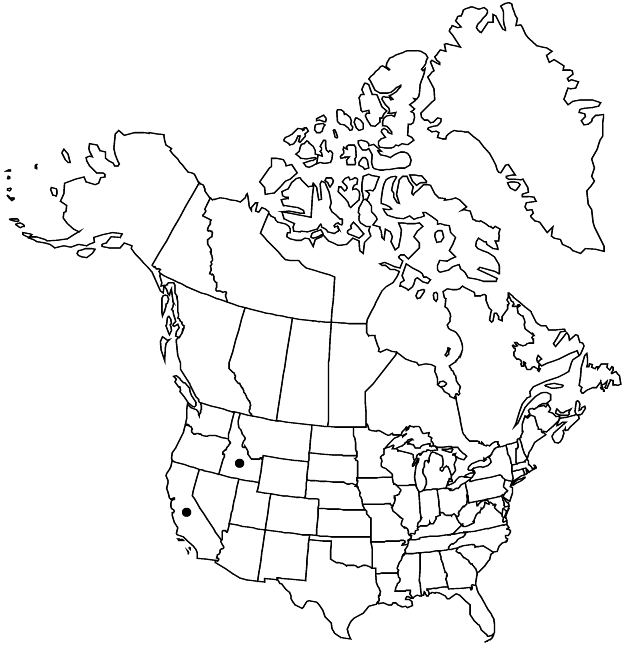Eriogonum inerme
Fl. Calif. 1: 406. 1914.
Herbs, spreading, annual, 0.5–3 dm, glandular, greenish or reddish. Stems: caudex absent; aerial flowering stems mostly erect, solid, not fistulose, 0.1–0.5 dm, glandular. Leaves basal and cauline; basal: petiole 0.5–2 cm, glabrous, not or indistinctly winged, ciliate, blade spatulate, 1–4(–4.5) × 0.4–1.5(–1.8) cm, glabrous, margins ciliate; cauline sessile, blade lanceolate, 0.3–1 × 0.1–0.3 cm, similar to basal blade. Inflorescences cymose, open or diffuse, 5–25 × 5–30 cm; branches glandular; bracts 3, scalelike, 0.5–1.5 × 1–2 mm, occasionally semileaflike, 4–10(–12) × 1–5 mm. Peduncles absent or erect, straight, slender, 0.1–1 cm, glandular. Involucres turbinate, 1.5–1.9 × 1–1.2 mm, glabrous or hispidulous; teeth 4, erect or nearly so, 0.8–1.2 mm. Flowers 4–6, 1.2–1.8 mm; perianth pink to reddish, hirsutulous with stiff, white, hooked hairs; tepals monomorphic, oblong; stamens included, 1–1.5 mm; filaments glabrous. Achenes brown, lenticular, 1.5–1.9 mm, glabrous; beak not exserted beyond tepals.
Distribution

Calif., Idaho.
Discussion
Varieties 2 (2 in the flora).
Selected References
None.
Key
| 1 | Involucres glabrous; Coast and Transverse ranges, California, disjunct in Boise County, Idaho | Eriogonum inerme var. inerme |
| 1 | Involucres hispidulous; Transverse Ranges and s Sierra Nevada, disjunct in Tuolumne County, California | Eriogonum inerme var. hispidulum |